Hello there, May is starting in the best way!
Variety just released the interview on newsstands today, plus a lovely video interview opened by Cate playing the harmonica (video below) Enjoy!





Cate Blanchett: Why ‘We’re Not Going Back to Ground Zero’ on Women’s Rights
Cate Blanchett has been to the Cannes Film Festival in various capacities since 1997, but this year she assumes a far weightier role as president of the jury — an honor made even more significant in that it’s only the 12th time a woman has filled that seat. The glaring gender gap is not lost on Blanchett. Nor is the fact that in the festival’s seven-decade history, “The Piano” director Jane Campion is the only woman to have ever won the prestigious Palme d’Or.Blanchett remembers being appalled to see Campion, who presided over the jury in 2014, conspicuously standing on the Palais stage at Cannes’ 50th-anniversary ceremony surrounded by an all-male coterie of auteurs who had also taken home the festival’s most coveted prize.
“Sometimes, things have to get that bad and that stark for us to say, ‘Hang on a minute. There’s something wrong — literally — with this picture,’” says Blanchett.
In a frank, wide-ranging interview with Variety, the two-time Oscar-winning actress of “Blue Jasmine” and “The Aviator” speaks candidly about the chronic suppression of women and the lack of opportunities they’ve endured. She believes that positive, irreversible strides are being made toward real change in an industry long known for male entitlement and domination. “We’re not going back to ground zero,” vows Blanchett, who’s among many high-profile women in Hollywood supporting the Time’s Up initiative. “This conversation has been had by so many individual women in isolated places for decades. What is different now is the collective, cross-industry nature of this movement.” At the same, she stresses that there’s still much to be done to level the playing field, be that on set, on-screen or in executive suites.
Blanchett, 48, assails the industry’s egregious pay inequities, and reveals for the first time that she, like other top actresses — Jennifer Lawrence, Michelle Williams and Claire Foy among them — has been denied compensation commensurate with that of her male counterparts. “It’s a huge issue. Show me one industry that has equal pay for equal work,” she says.
Also a first: Blanchett divulges her disdain for Harvey Weinstein, who she volunteers was an unwanted producer on several of her movies, including Todd Haynes’ “Carol,” which debuted in Cannes three years ago and starred Blanchett and Rooney Mara as forbidden lovers in the 1950s.
When asked point blank if Weinstein ever sexually harassed or was in any way inappropriate with her, Blanchett doesn’t flinch: “Yes.” As for another previous collaborator, Woody Allen, she says that if Dylan Farrow’s case against her father on allegations of sexual abuse was to be reopened, she’d fully support it.
Blanchett is a truth teller and seeker. She says she likes to listen more than talk, but when she does she’s straightforward, seemingly incapable of not speaking her mind. She makes no apologies for being self-critical and self-doubting. “I’m never happy … I think in a good way. When I say I’m restless, I think it’s in that Martha Graham kind of divine restless impatience to constantly be moving and looking for the fault in what you’ve done previously. … I’ve learnt far more from my failures than I have from any success I had.”
An Australian native who now lives outside London with her husband and their four children, Blanchett has passions that reach far beyond Hollywood’s borders. Days after our interview, the actress, who was named a goodwill ambassador for the U.N. High Commissioner for Refugees in 2016, went to Bangladesh to visit refugee camps, health clinics and a women’s center. She has also gone on missions to Lebanon and Jordan to meet with refugees and stateless people who have been displaced by the Syrian conflict.Describing herself as “intensely curious,” Blanchett obsessively tries to figure out what makes somebody tick, be it a character she’s portraying or a stranger she meets in an airport.
So what makes you tick?
Being in dialogue with people who are more interesting, better, more engaged, who don’t necessarily think like I think. I’m constantly interested in opening unexpected, invisible doors that I hadn’t seen. When you pick up a book that someone has recommended to you, or you see an exhibition, or you hear the story of someone’s experience. I was in Atlanta recently, and I stumbled upon a doctor who started talking to me about the high incidence of child trafficking that goes through Atlanta because of the international airport. Once that door had been opened, I can’t shut that door now.Are you politically minded?
I don’t see how you can’t be at the moment. I think it’s coming at us from all sides, really, and a lot of what’s happening is not really party political. It feels like it’s about the loss of civility or the threats upon our moral backbone. Sometimes cultures have to bottom out. We have to get to rock bottom before change can happen. I feel really positive about the inevitable, positive moves toward equality in the face of a lot of fear and adversity.
Speaking of equality — or lack thereof — can women ever achieve parity in a business where all but one media company are led by a man?
The window needs to be open for people to realize how stale the air is, and women have said, “The window is open now — see how sweet the air smells.” I feel like the dam has broken. There were cracks in the dam for an incredibly long time, and we were trying to sort of put putty on them. But it’s not just women; it’s also men. It’s also people of different sexual persuasions. It’s the lack of ethnic diversity. Our job is, yes, to be creative, but one of our primary jobs as artists is to be fearless. And I think we’re fearlessly examining the issues in our industry.Do you think the 50/50 by 2020 initiative for women in leadership roles is actually attainable, or is that a pipe dream?
I don’t think it’s a pipe dream because I think there’s a lot of will and organizations that have felt stale. Will we get those literal figures? I don’t know.Given the huge success of hits like “Blue Jasmine,” “Wonder Woman,” “Gravity,” “Arrival” and others, will Hollywood be swayed to now finance and greenlight more films with female protagonists?
The portion of Hollywood decision-making that you are referring to is deeply conservative, frightened or formulaic. So yes, as long as they think in the short term there is a well-trodden road, they will follow. What is changing is that women are truly starting to exercise the creative and box office clout they have en masse. We are collaborating without traditional Hollywood’s approval — perfect timing, as there are now so many disruptive platforms. If Hollywood doesn’t catch up and be part of this very real future, it will be left in the uncreative, irrelevant dust.Pay disparity has become a hot-button issue for several top female celebrities. As one of the biggest stars in the world, do you ever feel like you’re not getting your fair share?
Totally. There was a project I passed on recently, and I said, “I’m really sorry, but I know what the poster is going to be.” I knew from the get-go what the metaphorical poster image would be — me, shoulder to shoulder, font size to font size with my fellow actor, and consequently I knew what my worth was in the so-called creative equation. It would have been a fun film to make and a slog to publicize, but if I was being “sold” as a commodity of equal value to my male counterpart and worked as hard as him, I couldn’t reconcile why I wasn’t being remunerated equally. They wouldn’t budge. So I did not do it.This is the thing that’s hard, and this is where one gets attacked about being a financially secure actress: “How dare you talk about money?” This is what happened when Jen Lawrence came out and said it; she was immediately attacked for her hubris and greed. If we were in the oil industry — thank God I’m not in the oil industry or in the banking industry — there are certain profits that get distributed. If an actor is making a profound and pivotal contribution, then they should be remunerated accordingly. And when that remuneration is different, purely because of your gender, that’s just ridiculous. It’s a marker of how much you’re creatively valued within the equation. You want to be valued for your work.
Do you consider yourself a feminist?
Yes, absolutely. I never thought otherwise. I’ve never understood the stigma around that because it’s really just a drive toward equality. It’s not about building a matriarchy, although given the endless millennia that we’ve labored under a patriarchy I wouldn’t mind a small slice of matriarchy somewhere.Many powerful media figures like Harvey Weinstein, Matt Lauer and Charlie Rose have been brought down by allegations of sexual misconduct. Is enough being done to root out all the perpetrators?
There is so much work to be done, and it is being done. And, of course, there are a lot of cynics. Whenever change is actually happening there’s always a parallel critique on “Is it happening the right way? For what reason is it happening? Are there hidden agendas?” But change is happening within the industry in a kind of positive, unstoppable way that will benefit not just women but everybody in the industry.You’ve been publicly supportive of women who’ve come forward and spoken out about being sexually abused.
Absolutely. I’m sure there are a lot of people in the populist movement who feel they are unheard, unseen, voiceless, which is why they want to join a movement. I mean, God, wouldn’t it be revolutionary if you looked at the outsiders in all these different movements and tried to find a point of intersection in all of it? Often the party political can get in the way of finding those points of commonality.
Have you ever been sexually harassed?
Well, there’s layers and layers to sexual harassment. I’ve been pestered, of course. I don’t know that there are many people who haven’t been.You worked on a number of movies with Harvey Weinstein going back to “The Talented Mr. Ripley.” Did he ever sexually harass you or act inappropriately?
With me, yes. I think he really primarily preyed, like most predators, on the vulnerable. I mean I got a bad feeling from him. … He would often say to me, “We’re not friends.”What did he mean by that?
Well, I wouldn’t do what he was asking me to do. [When asked to clarify, Blanchett declined to specify.] I’m really interested in the people who have transgressed in ways that are beyond the bounds of offensive, what people like Harvey have done, and there are men across many industries [who have done that]. He’s been held up as an exemplar because he’s unfortunately typical of certain men. I’m interested in those people being prosecuted. We have to set a legal precedent.Part of the mission of Time’s Up is to help those who do not have the capacity to raise the funds to defend themselves and to move toward workplace equality, fairness and safety. When legal precedent is set by people being actually convicted, then other people can benefit from that because those precedents have been set. But me fueling the gossip and accounts? There’s enough out there.
Do you think Harvey could go to jail?
Well, I hope so. Statutory rape is a crime, the last time I looked. [Weinstein has denied all rape and sexual-misconduct allegations, but the LAPD, BHPD, NYPD and Scotland Yard are pursuing criminal investigations.]I think it’s really important that people get tried through the judicial system. It’s a really important arm of democracy that we must uphold because it’s under threat from a lot of different quarters.
Where do you stand on Dylan Farrow’s allegations of sexual abuse against her father, Woody Allen, with whom you’ve also worked?
Obviously, Dylan Farrow has been living in a world of pain, and if the case has not been properly tried, then it needs to be reopened and go back into court because that’s a place where those things get solved.Would you ever work with either Weinstein or Allen again?
I don’t think Harvey will be making films with anybody. He was brought on as the producer on many films that I had absolutely no say on. I didn’t have a creative or functional relationship with him.Would I work with Woody again? I had a very productive time working with Woody, and he has written some of the most extraordinary roles for women. But at the time I worked with him I knew absolutely nothing about what was going on, and it came out subsequently.
But, far more important than me adding to yet another headline … and finger-pointing is, if that issue has not been dealt with … I am absolutely for it to go back into the courts because there lies the solution.
There are many male directors who I have heard about and have not necessarily had positive experiences with whom I would not work with again who didn’t lay a finger on me at all. There are many reasons why one doesn’t want to work with people again.
Such as?
I’ve worked with directors who’ve treated their crews abominably, disrespectfully, who had not allowed them to fly. I feel when the crew is disrespected, I don’t want to work in environments where we’re not all making the film together.I come from a very nonhierarchal filmmaking culture in Australia. So when I initially started working in America, it was a big shock to me how frequently hierarchical the structures were, and it was just anathema to me. I don’t respond well when crew members — male or female — are disrespected or their input is not valued. I’m used to working in teams. And I want the environment to be creative, not cautious, because I think you all have to be fearless as a bunch of people. But in order to be fearless, there needs to be trust. It’s dealing with people on a social or professional basis when you feel that there’s a culture of entitlement: “My position entitles me to behave this way, to treat you this way.”
Isn’t the issue of entitlement and abuse of power at the center of the conversation around sexual misconduct?
There is no defending people who abuse people sexually, physically, [or who are] intellectual bullies — I’m not interested in defending them. But there are certain things that need to go through the criminal justice system. … Don’t let the white noise distract from that actually happening, because then the precedent is set. And also then don’t hunt around for someone who put their hand on someone’s knee. What social media does is flatline our ability to discern between things that are offensive and annoying and criminally reprehensible.I do think that what has finally been uncovered and finally discussed — and the reason why the eruption needed to be as volcanic and broad and loud as it was — is that this conversation will not be at ground zero again in 10 years. We are not going back to ground zero. We are moving onward and forward from here. So I think it’s really, really important that there have been as many voices as there have been in the discussion. But the challenge is then to wade through all of that to work out how we can actually weave those voices and perspectives into a tolerant, cohesive way forward.
Do you think of yourself as an activist?
As an actor, I don’t see my role in my work to tell people what to think. So, am I an activist? Yes. Part of what drives me as an actor is to work out what makes people tick, why people do things, but it’s also building bridges and empathy. If there is a function to art at all, it’s to form empathetic connections between the impossible and the possible. And so I’m always looking at things and saying, “Why are they doing that? Why is that happening? How can that be happening?” I’m engaged in the world. If I weren’t engaged in the world, I think I’d maybe be in a different profession. Like your work — you want to take the watch apart and try to put it back together.Did you hear Frances McDormand’s powerful Oscar speech?
F—, yeah. One of the highlights of my year so far. Fran is so wonderful. She’s one of the most truthful people I know. She’s not afraid to name the elephant in the room. I remember when I first came out of drama school, and I was in a play, and this grand, very, very well-respected theater actress who was playing the central role was talking to me about what it means to be a leading actress, and she said, “It doesn’t mean you’ve got the most lines. It doesn’t mean that you’re in more scenes.” She said, “That’s part of your job, but you have to lead the company. You have to be part of creating what the atmosphere is going to be in the room. And you have to be aware of bringing everyone else with you.”People talk about how people in Hollywood get up and give pontificating speeches. [McDormand] didn’t. She was a true lead actress. Not only because of the incredible work she did, but she was saying, “As the chosen lead actress this year, I’m leading the conversation.” And that’s part of your job, because when you get to a certain point in an industry, you do have an opportunity and a responsibility to advocate for the sector, to advocate for those who are coming up behind you and to make sure that whatever trials and tribulations you had could perhaps make it easier for the people behind you.
What about her final words: “Inclusion rider”?
It’s a litmus test, don’t you think? We have nothing to lose but progress.How likely is it that the films you and the jury are going to watch in Cannes will be a healthy, diverse selection reflecting our times?
Will there be an equal proportion of films represented directed by women? I don’t know. Will there be a transgender director? I don’t know. But those questions are being really openly interrogated.Are you at all uneasy about judging the work of your peers?
It’s an enormous responsibility. Because getting that prize is a big platform and an international launching pad for a movie. You’ve got nine people trying to balance and reach artistic consensus, which I’m sure will be a challenging task. I can’t wait for the conversation. Cannes is multicultural by nature, and my role is to respond to the work, not to agendas.
P.S.
Since we widely extended our archive in the last year, the costs are increased and we can no longer sustain them our own. This site is maintained by the admins in terms of money, material and time (a lot) for free. Nothing we gain for it, so we humbly ask all of you to support the site, and leave a donation. Every little bit helps. [Donation button in the bottom of the site]
 Welcome to Cate Blanchett Fan, your prime resource for all things Cate Blanchett. Here you'll find all the latest news, pictures and information. You may know the Academy Award Winner from movies such as Elizabeth, Blue Jasmine, Carol, The Aviator, Lord of The Rings, Thor: Ragnarok, among many others. We hope you enjoy your stay and have fun!
Welcome to Cate Blanchett Fan, your prime resource for all things Cate Blanchett. Here you'll find all the latest news, pictures and information. You may know the Academy Award Winner from movies such as Elizabeth, Blue Jasmine, Carol, The Aviator, Lord of The Rings, Thor: Ragnarok, among many others. We hope you enjoy your stay and have fun! 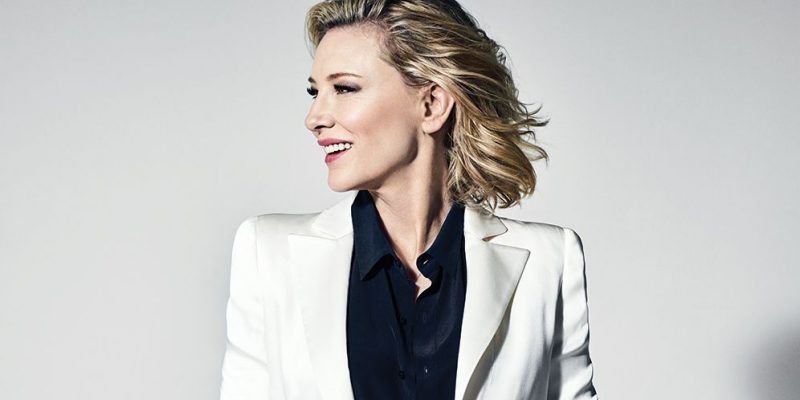
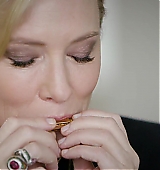
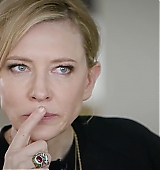
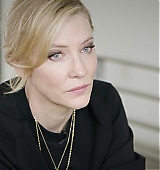
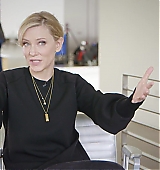
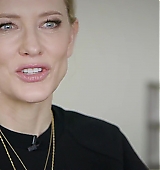


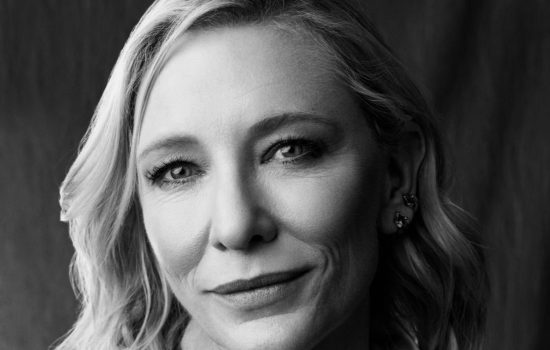

 Black Bag (202?)
Black Bag (202?) Father Mother Brother Sister (2024)
Father Mother Brother Sister (2024) Disclaimer (2024)
Disclaimer (2024) Rumours (2024)
Rumours (2024) Borderlands (2024)
Borderlands (2024) The New Boy (2023)
The New Boy (2023)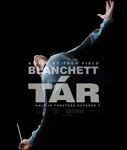 TÁR (2022)
TÁR (2022)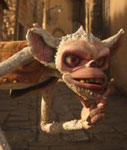 Guillermo Del Toro’s Pinocchio (2022)
Guillermo Del Toro’s Pinocchio (2022)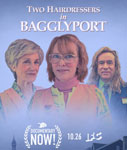 Documentary Now!: Two Hairdressers in Bagglyport (2022)
Documentary Now!: Two Hairdressers in Bagglyport (2022)












